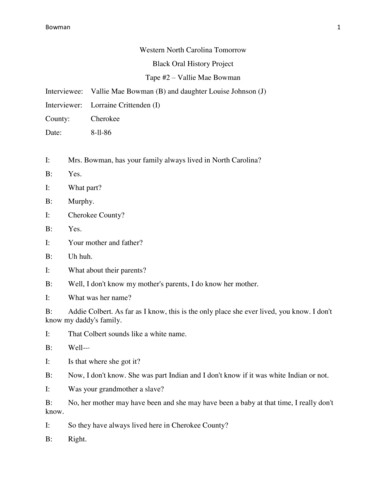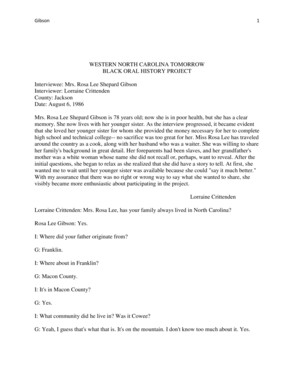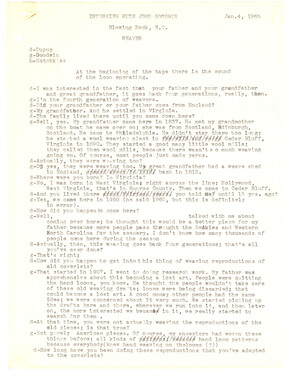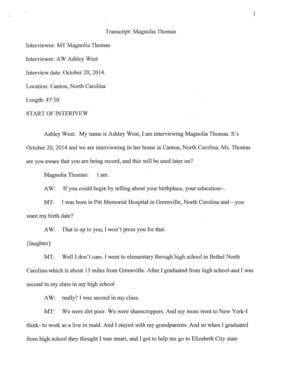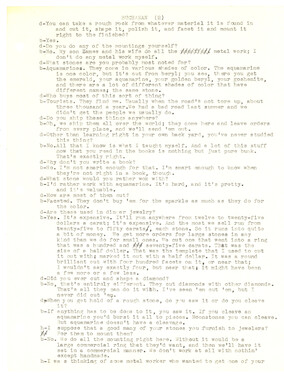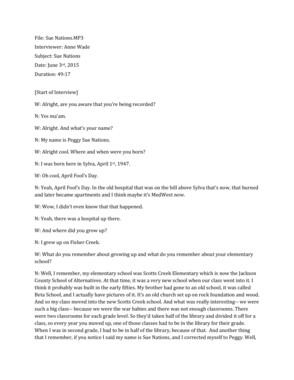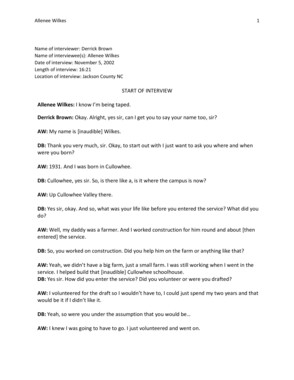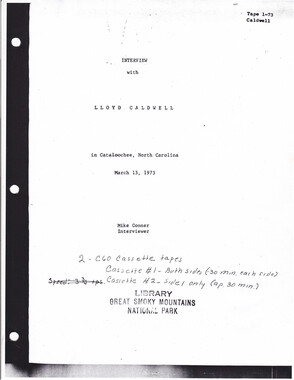Western Carolina University (20)
View all
- Canton Champion Fibre Company (2308)
- Cherokee Traditions (293)
- Civil War in Southern Appalachia (165)
- Craft Revival (1942)
- Great Smoky Mountains - A Park for America (2683)
- Highlights from Western Carolina University (430)
- Horace Kephart (941)
- Journeys Through Jackson (154)
- LGBTQIA+ Archive of Jackson County (15)
- Oral Histories of Western North Carolina (314)
- Picturing Appalachia (6679)
- Stories of Mountain Folk (413)
- Travel Western North Carolina (160)
- Western Carolina University Fine Art Museum Vitreograph Collection (129)
- Western Carolina University Herbarium (92)
- Western Carolina University: Making Memories (708)
- Western Carolina University Publications (2283)
- Western Carolina University Restricted Electronic Theses and Dissertations (146)
- Western North Carolina Regional Maps (71)
- World War II in Southern Appalachia (131)
University of North Carolina Asheville (6)
View all
- 1700s (1)
- 1860s (1)
- 1890s (1)
- 1900s (2)
- 1920s (2)
- 1930s (5)
- 1940s (12)
- 1950s (19)
- 1960s (35)
- 1970s (31)
- 1980s (16)
- 1990s (10)
- 2000s (20)
- 2010s (24)
- 2020s (4)
- 1600s (0)
- 1800s (0)
- 1810s (0)
- 1820s (0)
- 1830s (0)
- 1840s (0)
- 1850s (0)
- 1870s (0)
- 1880s (0)
- 1910s (0)
- Appalachian Region, Southern (15)
- Asheville (N.C.) (11)
- Avery County (N.C.) (1)
- Buncombe County (N.C.) (55)
- Cherokee County (N.C.) (17)
- Clay County (N.C.) (2)
- Graham County (N.C.) (15)
- Great Smoky Mountains National Park (N.C. and Tenn.) (1)
- Haywood County (N.C.) (40)
- Henderson County (N.C.) (5)
- Jackson County (N.C.) (131)
- Knox County (Tenn.) (1)
- Macon County (N.C.) (17)
- Madison County (N.C.) (4)
- McDowell County (N.C.) (1)
- Mitchell County (N.C.) (5)
- Polk County (N.C.) (3)
- Qualla Boundary (6)
- Rutherford County (N.C.) (1)
- Swain County (N.C.) (30)
- Watauga County (N.C.) (2)
- Waynesville (N.C.) (1)
- Yancey County (N.C.) (3)
- Blount County (Tenn.) (0)
- Knoxville (Tenn.) (0)
- Lake Santeetlah (N.C.) (0)
- Transylvania County (N.C.) (0)
- Interviews (314)
- Manuscripts (documents) (3)
- Personal Narratives (7)
- Photographs (4)
- Sound Recordings (308)
- Transcripts (216)
- Aerial Photographs (0)
- Aerial Views (0)
- Albums (books) (0)
- Articles (0)
- Artifacts (object Genre) (0)
- Biography (general Genre) (0)
- Cards (information Artifacts) (0)
- Clippings (information Artifacts) (0)
- Crafts (art Genres) (0)
- Depictions (visual Works) (0)
- Design Drawings (0)
- Drawings (visual Works) (0)
- Envelopes (0)
- Facsimiles (reproductions) (0)
- Fiction (general Genre) (0)
- Financial Records (0)
- Fliers (printed Matter) (0)
- Glass Plate Negatives (0)
- Guidebooks (0)
- Internegatives (0)
- Land Surveys (0)
- Letters (correspondence) (0)
- Maps (documents) (0)
- Memorandums (0)
- Minutes (administrative Records) (0)
- Negatives (photographs) (0)
- Newsletters (0)
- Newspapers (0)
- Occupation Currency (0)
- Paintings (visual Works) (0)
- Pen And Ink Drawings (0)
- Periodicals (0)
- Plans (maps) (0)
- Poetry (0)
- Portraits (0)
- Postcards (0)
- Programs (documents) (0)
- Publications (documents) (0)
- Questionnaires (0)
- Scrapbooks (0)
- Sheet Music (0)
- Slides (photographs) (0)
- Specimens (0)
- Speeches (documents) (0)
- Text Messages (0)
- Tintypes (photographs) (0)
- Video Recordings (physical Artifacts) (0)
- Vitreographs (0)
- WCU Mountain Heritage Center Oral Histories (25)
- WCU Oral History Collection - Mountain People, Mountain Lives (71)
- Western North Carolina Tomorrow Black Oral History Project (69)
- A.L. Ensley Collection (0)
- Appalachian Industrial School Records (0)
- Appalachian National Park Association Records (0)
- Axley-Meroney Collection (0)
- Bayard Wootten Photograph Collection (0)
- Bethel Rural Community Organization Collection (0)
- Blumer Collection (0)
- C.W. Slagle Collection (0)
- Canton Area Historical Museum (0)
- Carlos C. Campbell Collection (0)
- Cataloochee History Project (0)
- Cherokee Studies Collection (0)
- Daisy Dame Photograph Album (0)
- Daniel Boone VI Collection (0)
- Doris Ulmann Photograph Collection (0)
- Elizabeth H. Lasley Collection (0)
- Elizabeth Woolworth Szold Fleharty Collection (0)
- Frank Fry Collection (0)
- George Masa Collection (0)
- Gideon Laney Collection (0)
- Hazel Scarborough Collection (0)
- Hiram C. Wilburn Papers (0)
- Historic Photographs Collection (0)
- Horace Kephart Collection (0)
- Humbard Collection (0)
- Hunter and Weaver Families Collection (0)
- I. D. Blumenthal Collection (0)
- Isadora Williams Collection (0)
- Jesse Bryson Stalcup Collection (0)
- Jim Thompson Collection (0)
- John B. Battle Collection (0)
- John C. Campbell Folk School Records (0)
- John Parris Collection (0)
- Judaculla Rock project (0)
- Kelly Bennett Collection (0)
- Love Family Papers (0)
- Major Wiley Parris Civil War Letters (0)
- Map Collection (0)
- McFee-Misemer Civil War Letters (0)
- Mountain Heritage Center Collection (0)
- Norburn - Robertson - Thomson Families Collection (0)
- Pauline Hood Collection (0)
- Pre-Guild Collection (0)
- Qualla Arts and Crafts Mutual Collection (0)
- R.A. Romanes Collection (0)
- Rosser H. Taylor Collection (0)
- Samuel Robert Owens Collection (0)
- Sara Madison Collection (0)
- Sherrill Studio Photo Collection (0)
- Smoky Mountains Hiking Club Collection (0)
- Stories of Mountain Folk - Radio Programs (0)
- The Reporter, Western Carolina University (0)
- Venoy and Elizabeth Reed Collection (0)
- WCU Gender and Sexuality Oral History Project (0)
- WCU Students Newspapers Collection (0)
- William Williams Stringfield Collection (0)
- Zebulon Weaver Collection (0)
- African Americans (97)
- Artisans (5)
- Cherokee pottery (1)
- Cherokee women (1)
- College student newspapers and periodicals (4)
- Education (3)
- Floods (13)
- Folk music (3)
- Great Smoky Mountains National Park (N.C. and Tenn.) (1)
- Hunting (1)
- Mines and mineral resources (2)
- Rural electrification -- North Carolina, Western (2)
- School integration -- Southern States (2)
- Segregation -- North Carolina, Western (5)
- Slavery (5)
- Sports (2)
- Storytelling (3)
- World War, 1939-1945 (3)
- Appalachian Trail (0)
- Cherokee art (0)
- Cherokee artists -- North Carolina (0)
- Cherokee language (0)
- Church buildings (0)
- Civilian Conservation Corps (U.S.) (0)
- Dams (0)
- Dance (0)
- Forced removal, 1813-1903 (0)
- Forest conservation (0)
- Forests and forestry (0)
- Gender nonconformity (0)
- Landscape photography (0)
- Logging (0)
- Maps (0)
- North Carolina -- Maps (0)
- Paper industry (0)
- Postcards (0)
- Pottery (0)
- Railroad trains (0)
- Waterfalls -- Great Smoky Mountains (N.C. and Tenn.) (0)
- Weaving -- Appalachian Region, Southern (0)
- Wood-carving -- Appalachian Region, Southern (0)
- Sound (308)
- StillImage (4)
- Text (219)
- MovingImage (0)
Interview with Vallie Mae Bowman and daughter Louise Johnson
Item
Item’s are ‘child’ level descriptions to ‘parent’ objects, (e.g. one page of a whole book).
-
-
Bowman 1 Western North Carolina Tomorrow Black Oral History Project Tape #2 – Vallie Mae Bowman Interviewee: Vallie Mae Bowman (B) and daughter Louise Johnson (J) Interviewer: Lorraine Crittenden (I) County: Cherokee Date: 8-ll-86 I: Mrs. Bowman, has your family always lived in North Carolina? B: Yes. I: What part? B: Murphy. I: Cherokee County? B: Yes. I: Your mother and father? B: Uh huh. I: What about their parents? B: Well, I don't know my mother's parents, I do know her mother. I: What was her name? B: Addie Colbert. As far as I know, this is the only place she ever lived, you know. I don't know my daddy's family. I: That Colbert sounds like a white name. B: Well--· I: Is that where she got it? B: Now, I don't know. She was part Indian and I don't know if it was white Indian or not. I: Was your grandmother a slave? B: No, her mother may have been and she may have been a baby at that time, I really don't know. I: So they have always lived here in Cherokee County? B: Right. Bowman 2 I: Would you trace your family tree as far back as you remember beginning with your mother? Well, you said her name was Addie Colbert? That's your mother? B: No, that's my grandmother. I: Do you remember her mother? B: No, I don't remember her mother. I: What do you remember about your grandmother? B: I don't remember too much about her, I just remember seeing her, you know and knowing she was my grandmother. I: What did she do to earn a living? B: I don't know that. I: What about your grandfather on your mother's side? B: I never did know him. I: Ok. Your father? B: Well, my father worked at the marble quarry. I: Uh huh. Is it the one up in Marble, NC now? B: Yeah, that's it. That's all I know about him working. I: What did he do there? B: I don't know, I guess he dug that marble out, I'm not sure. I: Was that considered a good job at that time? B: Yes, pretty good at that time. I: Did your father and mother own their own home? B: Yes. I: And the land? B: Uh huh. I: Did you raise most of your own food? B: We raised a lot of it, yes we did. I: Did your mother have to work outside the home? B: No. She stayed at home. I: Were you the only child? B: No. I had brothers and one sister. Bowman 3 I: So she never had to go out and work? B: No, she didn’t have to go out and work. I: What about during the depression when times were really hard? B: Well, I was married at that time and I had a bunch of children myself. My mother she still didn't work. Father always made the living. I: And your father's name? B: Jim Allen. I: What about the educational background of your family? B: Well, they didn't have too much. My mother and father didn't. I: Could they read and write? B: No, not to do any good… very little. I: So when there was something to be read, who did it? B: Well, we children, you know when we were big enough to read and write. I: How long did you go to school, you and your brothers and sisters? B: Eighth. Eighth grade, that was as far as it went, and I didn't get to go anywhere because we had to go out of town, and pay for it, you know. Wasn't able to do that. I: Are any of your brothers and sisters in a profession? B: No. I: Such as teaching or nursing? B: No. I: Ok. In your family, how were the customary holidays celebrated like Christmas, Fourth of July, etc.? B: Well, just with the family together and all. We had very nice holidays. I: Could you be a little more specific, what did mama cook at Christmas? B: Oh. She cooked, I'll leave the turkey out, I guess it was chicken instead! She'd bake pies and cakes, and we'd just have a big dinner. I: Was there a Santa Claus? B: Oh yes, we had Santa Claus. But we didn't get too much like the children does now. I: What was your favorite Christmas? B: Well, my favorite Christmas was every one when Santa Claus came. I was always looking for something! Bowman 4 I: So there wasn't one that was very special? B: At that time, no. I: What about family life? You and your brothers and sisters, on cold wintery nights, what did you do to entertain each other? B: Well, we would just sit maybe and read and write, draw, eat popcorn, stuff like that. I: So you had a wood stove? B: Yes, we did. Sit by the fire, played checkers. Yeah, we did that a lot. That was about all we could do. I: In the summer time, when school was out, what did you do? B: Play again. Of course, we had chores to do. Carry spring water, cut and get in wood, and we played marbles a lot, ball. I: What about Fourth of July? Was that celebrated? B: Well, not too much. I do know as I got older they used to have some games on the Fourth of July, like ballgames, and there was a man here who would always do something on the Fourth and we'd have the greasy pig and the greasy pole. I: Did you actually get a pig? B: Yes, you did. You had to catch the pig. I: Oh boy. You said there was a man who would do something, what did you mean by that? B: Well he was from Georgia, and every Fourth of July he would put on a big day, you know, a program. I: What would he do? B: We would sing and he was the one who had the pig and the greasy pole! I never did try to catch the greasy pig or climb the pole either. I: Did most of the families have little communities that they lived in like Texana and [Notlea]? B: Yes. I: Did the communities get together? B: Yeah, I think [Notlea] and Texana did. Of course, some lived right in Murphy town all those years. So they would kindly get together and celebrate. I: Where did people go to get together for big celebrations, was it the church or school? B: It was at the school, uh huh. Maybe church too. I: Was church, then, mainly used for religious services, or was there some social? B: No, I think it has always been more religious. Bowman 5 I: Would you say that it is true that religion played a big part in community life? B: Yes. I would say so. I: What do you remember from when you were a youngster that has changed now in the church? B: Attendance, and I don't know. I: Back then, how long were the services? B: An hour or two, like they are now. Baptist has them about the same. I: Some of the older people have told me you go to Sunday school, to church, you take a break and go home and eat your lunch and come back for church. Was that true? B: Sure was. I carried all my children like that. Sunday school and you would come out for a few minutes, then back into church and you was out and home for lunch and back in church again. Then at night you would have church. Three services you would have on Sunday. I: What about some of the other practices such as baptism, has there been a change in that? B: I don't much believe there has. I: Communion? B: Not that either. I: I know, how often did you have the revivals? B: I think, just once a year, uh huh, maybe twice. I: Did people from surrounding towns come? B: Yes. I: Where would they stay? B: They would go back home, I guess, or stay with different people, you know that could keep them. I: Are you Baptist or Methodist or--? B: I'm Catholic. I: Catholic? B: Uh huh. I: How has that changed as a Black person in a small WNC town? Was your life any different? B: Yes, I think so. In the service, you know. I: Have you always been Catholic? B: No. Not always. Bowman 6 I: When did you convert? B: 1956, I believe. I: So you attend the Catholic Church here? B: Yes, I do. I: Are your children Catholic? B: She is- and I've got that granddaughter who left a while ago, she is Catholic. Then I have another daughter who is Catholic, and my son died who was Catholic and his wife. I: But up until your conversion, which Protestant church did you belong to? B: Mt. Zion Baptist. I: Do you remember the conventions where people, I have forgotten the names-- when they would spread tablecloths on the ground--May meeting. B: Yes. May meetings, uh huh. Any kind of big service they had. They would spread the tablecloth on the ground. I: What did Black people do for socializing, dancing? B: They did a lot of that, I guess. Maybe the older ones didn't. I used to dance when I was younger. I: Now was there a place or just house parties? B: Mostly house parties. I: Were the rules for girls a lot stricter than now? B: Yes, I believe they were. I: What about courting? B: They courted I suppose, I never did too much. I courted enough to get married! I: Did the young men come to the house to call and mama would sit over in the corner? B: Yeah. Uh huh. I: Were you allowed to go on dates. B: Yeah. I guess. I: What was a typical date? B: Box supper, something like that. Well, the young man would buy a box and him and his girl would eat it, you know. I: Were there names on the boxes? B: Yeah. I believe they were. Bowman 7 I: I was wondering because if you just line them up, how would you know who your date was? B: Oh no, that's right. I: So you really didn't know who your date was. B: I think everybody knew who I was dating, ‘cause I just went with the one boy, and I married him. I: I always thought that would be an interesting way to meet other people. B: Uh huh. I: If the box was nameless, and you bought say number three and it happened to be his girlfriend, he would make a new friend that way. What about marriage ceremonies? B: They were just like they are now. I: You mean they had fancy weddings? B: No, I didn't have a fancy one. Well, you dressed up pretty much, you know, in what you had and just have the wedding. I: Did you go to the minister's home or did he come to your house? B: Either one. I: Was there a reception afterwards? B: No. I: So after you said "I do" that was it? B: Yes. That was it! I: Did your husband already have a home built for you? B: No. He didn't have one. I: So you lived with parents? B: Yes. At the beginning. I: Was this the usual practice? B: Yes, it was. Now this is my home we bought after we was married, this is it. That has been 50 some years ‘cause I am 78 now, and I was 16 then. I: When you got married? B: Uh huh. I: What does your husband do to earn a living? B: Well, he worked, well sometimes he wrecked at these hotels or something. He worked up there where my clad worked at the quarry, and he worked at Tennessee at the Alcoa Aluminum. Bowman 8 I: So he had to go away from home and work? B: Yes. There wasn't any work here for him to do. I: Do you remember what period of time that was? Was it the depression which would have been the 30's? Would have made you 20. B: Yeah. I guess. I: So during the depression, he went to Tennessee? How long did you all stay there? B: I don't know, but I didn't stay too long. I: But your husband did? B: Yes, he stayed after I came home. I: In this community, who were considered leaders in the community, someone highly respected, for example when I grew up we looked toward ministers, teachers, etc. Is that true for you? B: Yes. Mainly so. I: Is there someone else? B: Any of the older people we thought, you know, that they knew a lot. I: I was just thinking besides the minister and the teacher and older people, was there a person when something needed to be done in the community like better roads, that would speak up for the community? B: I don't know who did that. I: Do you think that the role of the Black person has changed in the community? B: I believe it has. I: How? B: Seem like we have more freedom to do anything. White wants you, you know. I: What brought that about, that change? Do you think the Civil Rights Movement had anything to do with that? B: Yeah. I guess that helped some too. I: Can you think of another person who has done as much for the Black race as a whole? B: No. I: Alright. When schools were integrated, or even before that when the children needed better books or things like that in our school, who spoke up? B: I guess, Ms. Bennett. She was the teacher and principal, too. I: How many schools were there in Murphy for black children? Bowman 9 B: One. I: Where was it located? B: It was over here in Texana. I: Am I in Texana then? B: Yes. I: OK. Or for those who came from [Notlea], how did they get here? B: They walked, I think. I: How do you see that our roles differ today as they did when you were younger? B: Well, we have better opportunity to do anything, you know, that we can do. We have the same opportunities that Whites have. I: Do you think that when the young person goes out after graduation, are they still in the frame of mind they want to be a teacher or a preacher? B: I don't know. They can be most anything they want to be. I: Now. When most of the young Blacks graduate from high school here, do they stay in Murphy? B: Yes. They pretty much do. I: What do they do? B: Some don't do anything much, some where they can get work. Now I have a grandson who graduated from Mars Hill. I: Did he? B: He's here now, working on these roads. I: Do you find that the young people want to stay in Murphy? B: I believe they do, they don't get away much. I: Well, what are some of the chief employers? Are there a lot of factories? B: We have several plants here. I: So even though your grandson has a four-year degree, he chose to come back here and do construction work? B: That's what he is doing now. I think he hasn't been able to get in his field. I: What was his field? [Someone else talking here] Economics. I: Why do you think he can't find a job here? Bowman 10 (Can't hear lady's above remark) UNAUDIBLE HERE. NOISE BEHIND VOICES. J: Well, I guess I: Because at home the young White people want to stay, you know, they would finish high school, get married, buy themselves a trailer and a truck and that's all they're looking for. There are so few Blacks involved. I left home because I knew there wasn't a chance for me. When I was growing up, my aunts and uncles who went to school all left because they were not given the opportunities to teach or lead. Like one uncle was in air-conditioning and refrigeration, he couldn't find a job. And so they left because of that reason. But I would think because you are so close to the Georgia line, that some of them would go to Georgia. Is that true, or not? J: I really don't know what they want because like I say, we're not talking about [time?] in Asheville and Marion this year, and she goes to UNC-Asheville. I: Oh, does she? J: So we're just talking about Texana in general. I: Right, in general, that's what I'm saying. But most of them stayed right here in Texana. J: Uh hum . . . work at these factories… of course with what they make at the factories, you could do as well as if you had gone off to school…even if you don't have a degree…so as far as that goes, I guess they can…some of them make $6-$8 an hour counting their incentives, so I feel like they think they do fairly well. Well see, I always lived in Asheville. After my dad got sick and died, I came back here to live. I: Could you give me an example of Black leadership in the past? B: Mr. Lathan. I: Mr. Lathan? Tell me about him. B: He was a good old man. That was back when I was just a girl. He came here, not sure where from. He was a religious man and he worked at the hotel and he organized choirs and everything. He was just a good old Christian man. I: He was considered a leader in the community? B: Yes, he was. I: Do you remember people in the community with special skills and how they shared in the community? Was there ever a Black-owned business in Murphy? B: Yes, [Jake], he owned it. J: …he repaired shoes - a cobbler is what you'd call it. B: He had his own business. I: Was there someone who had the skills to be a midwife? J: Yes, Mrs. Hall Bowman 11 I: Now, that's the kind of people I am asking you to remember. B: Mrs. Hall, then Mrs. Rena Smith and she . . . course I don't know J: She came here in [inaudible]. B: Yes, she done [inaudible] but Mrs. Hall, oh she was a midwife for all these babies. I: Was she a midwife only for Black babies? B: I don't know. I can't remember. I: Was there someone in the community who has a gift of ministering medicine from the woods, herbs? For example, if I had a cold, my grandfather would go to the woods and dig up certain things. Is there a person like this in the community? B: Oh yeah, I guess there is several like that. I'm not sure if there is a special one or not. I: What were some of their names? B: Well, let's see. You mean dig up stuff and give to other people? I: Right. B: Well, I don't know. I: Did your mother treat you? B: Oh yeah, she treated me. I: Who taught her? How did she know which root? B: I don't know, but she'd go, ‘cause a lot of times I would go with her in the woods and dig and hunt the stuff. For colds and fever… I: If there were someone ill in the community, what person(s) could you count on being there to help?? J: Sadie and Priscilla. You see some of these things I just heard people talking. I: Of course every community seems to have a nurse, who isn't a trained nurse, but they would be there . . . (everyone. talking at once here) J: Sadie would come and would be there. B: Yeah, I had a sick baby and well they thought he was dying, and Sadie came to see me and the baby and she stayed all day with me. I remember she needed something from home and my husband went to get it, she wouldn't even leave me because I was an old silly girl, mostly. They just did like that whenever there was anybody sick in the community or something. I: Was there people. Who specialized in building things? J: Daddy B: My husband. I: What could he build? Bowman 12 B: Anything, cabinets, you know, houses, just mostly anything. I: He built houses? B: Yeah, her daddy. He built most of this one, most of it, concrete work and such. I: Did he do this in the White community, too? J: Oh yeah, he did more for the Whites--than he did for Blacks, and it was just talent. I: By talent, do you mean he didn't go to school and study for years, it was just a gift? B: That's right. J: He thought we should all know all of that, because we had an education, and he only had about a sixth grade education. B: He did this house J: There's a place across town where he built these people a swimming pool. I: A swimming pool? B: Uh hum. I: What else did he build? J: Well, nothing, other than like I said, he did all the cement work here, built the cabinets, and so forth. I: And he was self-taught? J: Yeah B: Yes, he was. I: That's wonderful. Now when you were at home with your children, did you have hobbies or something special you liked to do? B: Nothing special, but play with the kids. I: What would you do in the community? B: I was President of the Missionary Circle, and sang in the church choir. I was one of Mr. Nathan's favorites. I was really a church goer. I would take these children with my mama's help and get them there. I went to church three times a day. And I would go to Sunday school. I: Let's go back. You said you had a son? B: Yeah, I had three sons. Two died. I: Would you name your children please? B: Louise, [Argil], Bob or Robert, Grace, Clayborn, and Kay. Is that all of them! [Laughter] I: Were any of your children in the service? Bowman 13 B: Yes. Argil was, my oldest and Clayborn was. I: World War II? B: Uh huh. I: Do you remember anything special about that time, World War II? Usually during a war there is more work for people because of the different needs of the military. Do you remember anything like that? B: I don't remember. I: Do you know where he was stationed? B: Germany. I: Which branch of the service was he in? B: Army. I: After he got out of the army, what did he do? B: Well, I really don't know. Did he go to work at the filling station, Louise? J: I guess he did when he first got out. I wasn't here anyway. I: Is he still here? B: He's dead. I: Oh, I'm sorry. While he was alive did he live here in Murphy? B: Yes. He went to Chicago and got married then he was here and he had been up there 20 years or more. I: What did he do there? J: He worked at a chemical plant, I believe it was. I: Would it be a fair statement to say he left here to get a better job? B: Yes, that's exactly what he left for. I: After 20 years there, which of course made him a little older, did he come back here for retirement? J: No, he got tired of the city, and the children were grown then and they got their education and then he just came back here to take it easy because he had a heart attack. I: I see. You said you had another son? B: He lived and worked in Asheville--Bob. He was a roofer. He died – they both died six months and two days apart. I: Before he died, was he in any of the wars? B: No. Bob he didn’t serve in the wars at all. Bowman 14 I: Do you remember the Depression? B: I remember it, but it didn't hurt me too bad. I worked a little then. My children were old enough that I could leave and I worked doing house work, cleaning, cooking for about $3.00 or $4.00 per week. I: How many hours a day? B: About all day. I: Do you remember the WPA? B: Yes. I: Was any of your family in that program? B: Just my husband, he worked on the WPA. I: What did he do? B: Well, with the WPA, I guess he did whatever they needed. J: Things pertaining to the town. Whatever the town needed. I: Do you remember when you bought your staples with stamps? They rationed the stamps? That was World War II. J: I can kind of remember that. You had sugar and coffee and shoe stamps because I remember how careful I was supposed to be with my shoes. I can remember dad taking my shoes to the man who fixed them, because the stamps only bought you about two pairs a year. I was little, but I remember knowing I had to be careful with those shoes. I: What kind of shoes were they? J: Brogans, I guess. [Laughter] I guess that's why I buy so many shoes now and don't even wear them. B: Do you remember the little boy's brograns your daddy got you? J: Oh yeah, they had hooks on them and he had my uncle cut them and fix them for me. They were stamp shoes. I: Did the times get easier for Black people after the war? B: Yeah, I think so. More people at work. I: Did you have to stand in line with these stamps? J: No, you could go to the store anytime you wanted and get them. That was so it would go around I guess. They were you could have the money, but if you didn't have the stamp, you didn't get the shoes. You were allotted so many. I: Do you remember when the welfare program started in Murphy? J: I don't know anything about that. We never had to be on welfare, but I remember a couple of my friends, I can remember hearing them talk about how they couldn't have a radio, Bowman 15 because welfare was so different then it is today. Now people on welfare do as good as us working people. J: But back then I could remember this friend of mine, I remember they were on welfare, their dad was a sick man and her mother had all these children and they didn't have a radio. But it's because they felt like if you could own a radio, or any of the luxuries that you didn't need to be on welfare. I: Right. J: And nowadays they got Cadillacs and most anything else they want and still be on welfare. B: And we're driving Pintos. [Laughter] I: O.K. J: But, now when I that started, I don't know, I could just remember that I was just a girl and she was a girl at that time. I: Can you think of the worst thing that has happened in Murphy because you're Black? J: Well, as far as I know, in my opinion, like I said I lived Asheville, to me, in Murphy the Blacks have been treated like anybody else here in Murphy, no worse at all. B: Sure have. I: Was there social interaction between Blacks and Whites? [Daughter continues to talk here through several questions below] J: Mostly religious. They would come -- We've always had the Whites to come out here and go to church and revivals. I: But other than the church? J: No, other than the church, no school socializing and such. I: What about movies and restaurants? J: It was segregated, the Blacks set in the balcony and the Whites downstairs. I: Can you think of anything that happened to a Black person or family? Angie, my daughter, she was born in Asheville at the Asheville Colored Hospital But, in Murphy you've always been able to go to the hospitals. B: Yes, and any room you wanted. I: Now that's different because in the other towns that I've interviewed people, there was a side or something, just a room for the Black people. J: After Asheville did away with Asheville Colored Hospital, they took the Blacks to Memorial Mission and we just had a wing. I: And that never happened in this small town? Bowman 16 B: No. J: And that's where my second child was born, in the wing for the colored in Memorial Mission Hospital. And then after that it was anywhere. But that's on her birth certificate - the Colored Hospital! B: Over here it's Peachtree Hospital, then after the sisters bought it, it was Providence. J: Or down at Murphy County because Bob was born at Murphy County Hospital. Gail was born at Peachtree Hospital and Angie was born in Asheville Colored Hospital. B: Well, one of Rob's (or Bob's) babies was in there with the white ones. They put them all in there together in the same room. I: Today who are the leaders in the Black community? B: Frank [Sutter], but he has died. I: O.K. Frank Sutter. Now that he has died, who is the leader? Do you feel you have a leader now? B: I don't much believe we do. [Talking at the same time] Maybe Frank Blount (not sure of name-all) He is a young minister. I: He is? J: Uh huh. I: Is he active in the community? By that I mean does he come to the homes and visit or did he try to start a youth group or something? J: Now his wife I think works with this, too. The whole community as a whole is real nice to my mother, all of them pop in to see them. So I really can't say who's the leader. I: OK. Let me be a little more specific. In this community if you need any pot holes filled, who do you speak of? B: Emma Moore. She is one that will speak up. I: OK. Can you remember any other Black history projects that have been completed or are in progress? Has anyone ever come around and asked you your family history? J: My daughter came here one year from Maryland and she was trying to trace back as far as she could our family history. I: But, for the Black population at large, no. Now, is there anything else about your life that you want to share that I haven't asked you? B: I can't think of anything. I: Now, since your husband was a builder and so forth, were your children able to get higher than an eighth grade or high school education? I: Do most of your children have a high school education? Bowman 17 B: Yeah. I: Did they have to go any to school? B: Yeah, and they had to pay. I: Was that a hardship for you and your husband? B: Pretty much, we didn't have to do so much for Kate, because the Catholic sisters and the priest when she finished high school, they sent her to Massachusetts to X-ray school. The rest of them had to work for them. I: I certainly want to thank you for your cooperation and sharing your life with us. B: You're welcome. I: Is there any other historical fact that you remember? Anything about your father? B: Well, that's all I remember. I just know he was a hardworking old man. I: How did he get to Cherokee County? B: He came with this White man, this [Allan] man. So everyone got to calling him Allan. He originally was a Bailey from down about Stokes County, I believe. I: Your grandfather? B: No my father. I know it was down about Winston-Salem. I: So he came here with a White family, but he wasn't a slave. B: It was called sharecropping then. I: Ok. B: But he stayed with his wife most of the time. Everybody just called him Jim Allen. I: Did your father own land or the house that you grew up in? B: Yes. Uh huh. Right down here. I: Approximately how much acreage did he have? B: Must of been about five acres I guess cause that over there where Louise, now that other house back down to that house down there. That's where my old home place, but a different house now. I: And your father owned this? B: Yes. I: Do you know he acquired it? B: He bought it I think, but I don't know for sure. I: What did you tell me he did for a living? Bowman 18 B: Worked at the marble quarry. I: When you said he was an Allan but his name should have been Bailey, why is that? B: Well, I don't know. He was a stranger here and when he come here with the Allans, everybody called him Jim Allan. I: Do you think he sharecropped for the Allans? B: He probably did, I don't even know the Allans. Seems like there is a place out here going toward Blairsville, Ga., seems like that was where old man Allan lived. He married my mother here and thus started his family here. Yeah. I: Alright. Thank you.
Object
Object’s are ‘parent’ level descriptions to ‘children’ items, (e.g. a book with pages).
-
Vallie Mae Bowman is interviewed by Lorraine Crittenden on August 11, 1986 as a part of the Western North Carolina Tomorrow Black Oral History Project. Bowman discusses her and siblings education levels, her parents during the depression, how they celebrated holidays, communities of Notlea and Texana, church background and conversion, dating/courting, black leaders not only for the Civil Rights Movement but also locally, "colored" hospitals, and more.
-
